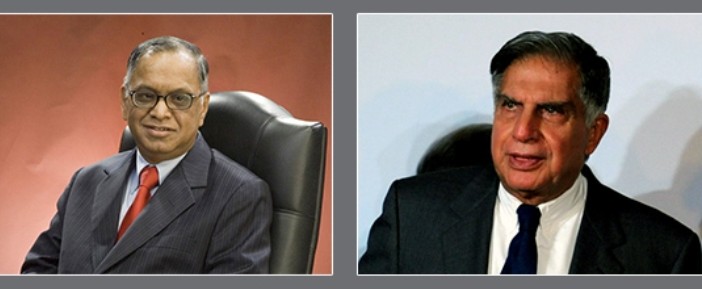Corporate governance needs to be reinforced in India to ensure the most talented managers rise up the corporate ladder, writes India Inc. Founder and CEO Manoj Ladwa.
The sudden and dramatic resignation of Vishal Sikka as CEO and Managing Director of Indian IT bellwether Infosys amid allegations and counter-allegations between the board of directors on the one hand and a section of the founders led by the redoubtable N.R. Narayana Murthy points to serious corporate governance issues even at India’s best managed and iconic companies.
The Infosys saga is almost a déjà vu moment for people like myself, who track India’s economy, politics and corporate scene very closely. A few months ago, another talismanic Indian industrialist came out of retirement to oust the man he had handpicked as his successor. Yes, I’m talking of Tata Group Chairman Emeritus Ratan Tata and his ugly spat with Cyrus Mistry.
In a letter to Infosys employees, Mr Sikka said he had resigned with immediate effect as CEO and MD of Infosys as the continuous disruptions and distractions in recent months and quarters – a euphemism for the strident criticism unleashed by company founder and Chairman Emeritus Murthy about a number of issues including Mr Sikka’s compensation, the severance package given to former CFO Rajiv Bansal and disclosures or the lack thereof about allegations over Infosys’ recent acquisition of a company called Panaya – had made it difficult for him to focus on his goal of transforming the company.
In both these cases, the founder(s)/promoter have cited alleged deviations from the corporate governance norms they had set for their respective companies. But it must also be added that, in the absence of proof, their charges of digression from expected standards have led many to wonder if they were tilting at windmills.
The purpose of that rather lengthy introduction was not to discuss the relative merits of these two cases but to use them to point to another issue – that of corporate governance, of which succession planning at the top is, and must be, an integral part.
![]() I’m not qualified to discuss whether Mr Murthy and Mr Tata were right or wrong in doing what they did. That is water under the bridge and mills cannot grind with the water that is past. But I hope these two high profile instances – of iconic founders/promoters clashing with their handpicked successors supposedly in defence of “high principles” – can be the stimulus for the Indian corporate world to adopt stricter governance standards.
I’m not qualified to discuss whether Mr Murthy and Mr Tata were right or wrong in doing what they did. That is water under the bridge and mills cannot grind with the water that is past. But I hope these two high profile instances – of iconic founders/promoters clashing with their handpicked successors supposedly in defence of “high principles” – can be the stimulus for the Indian corporate world to adopt stricter governance standards.
Jack Welch was an iconic Chairman of GE. In fact, I would go so far as to say that GE’s present avatar is almost wholly the doing of one man – Welch. But when he hung up his boots and handed over the baton to Jeff Immelt, he didn’t feel the need to keep peering over his successor’s shoulders to see if his legacy was being protected.
In the West, it is fairly common for promoter families to leave the management of their companies entirely in the hands of professionals. It has happened in hundreds of cases. There is no Disney in Walt Disney & Co, no Proctor or Gamble in the company that bears their name, and no Hewlett or Packard in the legendary computer company. Then, Bill Gates’ daughter will almost certainly play no major role in the software company co-founded by her father.
Why, then, are founding families at Indian businesses so loath to give up control? This could, possibly be understood in the era when management control effectively gave promoters with relatively low shareholdings the right to extract often illegal benefits.
But that era is now, hopefully, behind us.
As we take baby steps into what Prime Minister Narendra Modi has so evocatively called “new India”, we can strive for a corporate governance structure where management is separated from ownership, so that the best managers rise to the top of the corporate ladder – multiplying, in the process, the wealth of the scions of the founding families of these companies.
I’m happy that this is, indeed, happening in a few instances. No member of the Pai family, for instance, holds any executive position in any company controlled by the Manipal Pai Group. Ditto for the Burman family that controls Dabur. They are still among a minority within Indian business families.
But I’m hopeful that as more stringent corporate governance norms shine the torch of transparency into the inner workings of large and medium Indian companies, their tribe will grow in the years to come.







